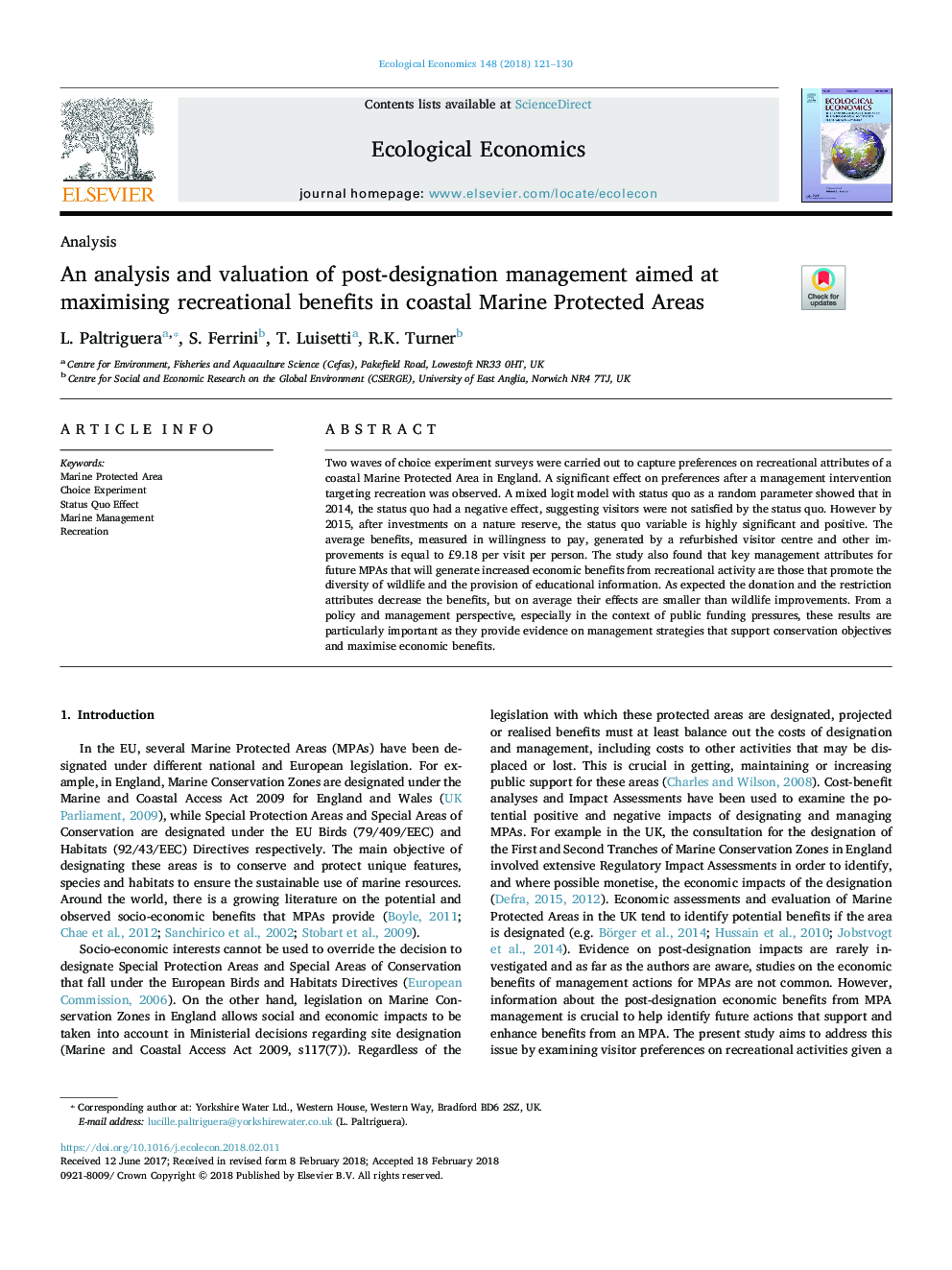| Article ID | Journal | Published Year | Pages | File Type |
|---|---|---|---|---|
| 7344192 | Ecological Economics | 2018 | 10 Pages |
Abstract
Two waves of choice experiment surveys were carried out to capture preferences on recreational attributes of a coastal Marine Protected Area in England. A significant effect on preferences after a management intervention targeting recreation was observed. A mixed logit model with status quo as a random parameter showed that in 2014, the status quo had a negative effect, suggesting visitors were not satisfied by the status quo. However by 2015, after investments on a nature reserve, the status quo variable is highly significant and positive. The average benefits, measured in willingness to pay, generated by a refurbished visitor centre and other improvements is equal to £9.18 per visit per person. The study also found that key management attributes for future MPAs that will generate increased economic benefits from recreational activity are those that promote the diversity of wildlife and the provision of educational information. As expected the donation and the restriction attributes decrease the benefits, but on average their effects are smaller than wildlife improvements. From a policy and management perspective, especially in the context of public funding pressures, these results are particularly important as they provide evidence on management strategies that support conservation objectives and maximise economic benefits.
Related Topics
Life Sciences
Agricultural and Biological Sciences
Ecology, Evolution, Behavior and Systematics
Authors
L. Paltriguera, S. Ferrini, T. Luisetti, R.K. Turner,
